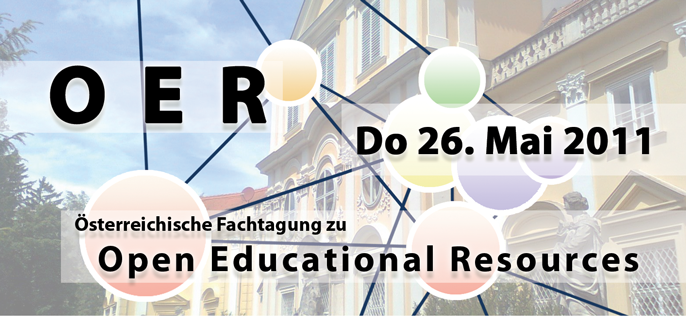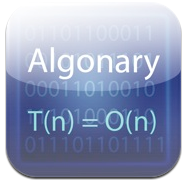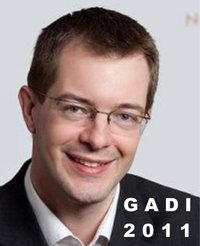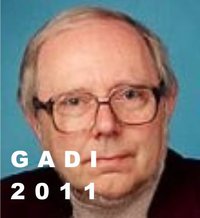Wer mich kennt, weiß dass ich ein großer Fan von Visualisierungen bin. Die hier finde ich wieder sehr gelungen, vorallem kann man so einfach darstellen, was ein Weltkrieg ist – wirklich beeindruckend:
[l3t] Mehr als 30.000 Downloads :-)
 Gleich vornweg: Das sind nur die Downloads von L3T-Kapiteln von unserem eigenen Server, es gibt inzwischen ja schon zahlreiche Kopien auf anderen Servern (beispielsweise bei Slideshare) – die wir so nicht verfolgen können. Jedoch in Real-Time nachzuverfolgen sind die Downloads von Kapiteln vom System! Diese Zahl von Downloads ist ein schöner Erfolg für alle Beteiligten und wir sind schon sehr gespannt, wie das weitergeht … und bleiben bekanntlich dran.
Gleich vornweg: Das sind nur die Downloads von L3T-Kapiteln von unserem eigenen Server, es gibt inzwischen ja schon zahlreiche Kopien auf anderen Servern (beispielsweise bei Slideshare) – die wir so nicht verfolgen können. Jedoch in Real-Time nachzuverfolgen sind die Downloads von Kapiteln vom System! Diese Zahl von Downloads ist ein schöner Erfolg für alle Beteiligten und wir sind schon sehr gespannt, wie das weitergeht … und bleiben bekanntlich dran.
- Ebner, Martin & Schön, Sandra (2011, Hrsg.). Lehrbuch zum Lernen und Lehren mit Technologien. URL: https://l3t.eu
- Sponsoren gesucht! siehe https://l3t.eu/patenschaft/
- Videos zum Lehrbuch
- Videos zum Projekt
- Follow us on Facebook
[iunig] OER-Tagung am 26.Mai in Graz
 Bevor ich mich in die Osterferien verabschiede, muss ich noch hinweisen, dass das iUNIg-Team wiederum eine Tagung organisiert. Dieses Mal laden wir zum Thema „Open Educational Resources“ und wollen diese von vielen Seiten betrachten. Neben den Keynotes von Grainee Conole, Sandra Schön und Sabine Zauchner bieten die Partneruniversitäten Workshops an, die das Thema aus Sicht ihrer Institutionen aufgreifen. Die TU Graz wird dabei über ihre Open-Content-Strategie berichten. Wir freuen uns auf viele TeilnehmerInnen und spannende Diskussionen. Also hier gibt es alle Details und anmelden nicht vergessen 🙂 .
Bevor ich mich in die Osterferien verabschiede, muss ich noch hinweisen, dass das iUNIg-Team wiederum eine Tagung organisiert. Dieses Mal laden wir zum Thema „Open Educational Resources“ und wollen diese von vielen Seiten betrachten. Neben den Keynotes von Grainee Conole, Sandra Schön und Sabine Zauchner bieten die Partneruniversitäten Workshops an, die das Thema aus Sicht ihrer Institutionen aufgreifen. Die TU Graz wird dabei über ihre Open-Content-Strategie berichten. Wir freuen uns auf viele TeilnehmerInnen und spannende Diskussionen. Also hier gibt es alle Details und anmelden nicht vergessen 🙂 .
[iphone app] Algonary
 So, eine weiter App ist im App Store der TU Graz erschienen – Algonary – mit dem Ziel Algorithmen für Informatikstudierende zur Verfügung zu stellen.
So, eine weiter App ist im App Store der TU Graz erschienen – Algonary – mit dem Ziel Algorithmen für Informatikstudierende zur Verfügung zu stellen.
The App Algonary offers a dictionary of algorithms that are taught in university courses which have a emphasis on informatic and softwaredevelopment. They are given a better understanding of the algorithms with texts, runtimes, pseudo codes and animations.
Hier kann die App downgeloadet werden [Link] und alle weiteren verfügbaren Apps der TU Graz findet man hier [iTunes Link].
[gadi2011] Future Internet und mobile-Endgeräte

 Der sechste Termin der heurigen Vorlesung „Gesellschaftliche Aspekte der Informationstechnologie“ an der TU Graz besteht aus folgenden Vorträgen:
Der sechste Termin der heurigen Vorlesung „Gesellschaftliche Aspekte der Informationstechnologie“ an der TU Graz besteht aus folgenden Vorträgen:
- Hermann Maurer: „Wohin geht die Fahrt: Zu intelligenten Computern oder zur Computer-Mensch Symbiose“ (Facebooklink)
- Christian Kittl: „Mobile Endgeräte und das „Internet of Things“ – Schöne neue Welt?“ (Facebooklink)
Der Vortrag wird live gestreamt – Link zum Streamingserver
Weitere Vorträge/Abstracts findet man hier auf der Vorlesungshomepage.
[Gadi2011] Online-Gemeinschaften und e-Learning
Die beiden Vorträge vom 06.04.2011 sind nun online verfügbar:
Sandra Schön über „Online-Gemeinschaften“:
Ich zu „Digitales Lehren und Lernen: Wie verändern Neue Medien den Unterricht?“
[podcast] L3T assists m-Learning
My talk about „L3T assists m-Learning“ at Mobile learning: Crossing boundaries in convergent environments Conference in Bremen ist now onine available. Slides and Publication have alreday been published.
[GADI 2011] ICT in Drittländern und Zukunftsprognosen
Die beiden Vorträge vom 30.03.2011 sind nun online verfübar:
Hermann Maurer zu „We have seen nothing yet„:
Mark Kramer „Broadening Access to ICTs in Lesser Developed Regions“
[publication] Survival of the Fittest – Utilization of Natural selection Mechanisms for Improving PLE
Our publication on „Survival of the Fittest – Utilization of Natural selection Mechanisms for Improving PLE“ at EFEPLE11 Workshop in France is now online available – the slides you will find here.
Abstract:
In the current ongoing work we propose the use of tracking and feedback mechanisms in order to improve our Personal Learning Environment (PLE), officially launched in October 2010. The approach can be seen as a necessary prerequisite similar to the darwinistic model of evolution. This means the implemented widgets will be improved (variation) and removed (selection) according to the observations. This paper will describe the backgrounds, methods and some details of the technical implementation.
Klicken Sie auf den unteren Button, um den Inhalt von www.scribd.com zu laden.
Reference: Taraghi, B., Stickel, C., Ebner, M. (2011) Survival of the Fittest – Utilization of Natural selection Mechanisms for Improving PLE, 1st Workshop on Exploring the Fitness and Evolvability of Personal Learning Environments (EFEPLE’11), Held at the 2nd STELLAR Alpine Rendez‐Vous (ARV) in the French Alps, March 27‐31
[GADI 2011] Online-Communties und Digitales Lernen

 Der fünfte Termin der heurigen Vorlesung „Gesellschaftliche Aspekte der Informationstechnologie“ an der TU Graz besteht aus folgenden Vorträgen:
Der fünfte Termin der heurigen Vorlesung „Gesellschaftliche Aspekte der Informationstechnologie“ an der TU Graz besteht aus folgenden Vorträgen:
- Sandra Schön: „Online-Gemeinschaften“ (Facebooklink)
- Martin Ebner: „Digitales Lehren und Lernen: Wie verändern Neue Medien den Unterricht?“ (Facebooklink)
Der Vortrag wird live gestreamt – Link zum Streamingserver
Weitere Vorträge/Abstracts findet man hier auf der Vorlesungshomepage.
